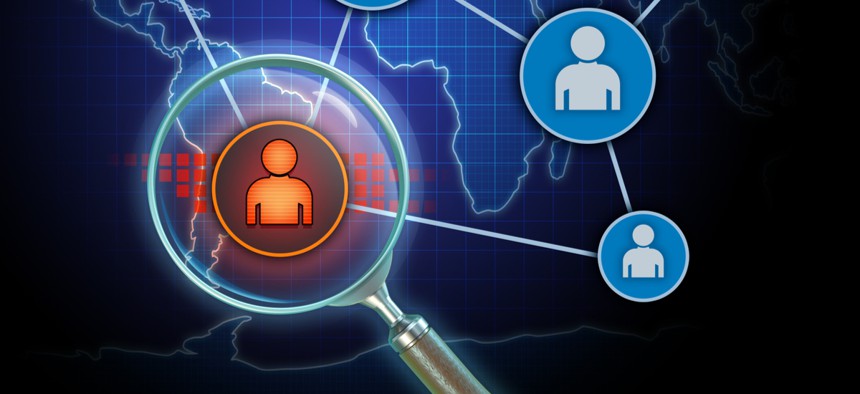Security Clearance Backlog Hits Long-Awaited ‘Steady State’

Andrea Danti/Shutterstock.com
The backlog of background investigations has leveled off at a sustainable 200,000, according to lawmakers.
The newly reconstituted background investigations agency based out of the Pentagon has achieved a years-long goal of reaching a “steady state” of pending security clearance requests, according to lawmakers briefed Wednesday.
In October, the Defense Counterintelligence and Security Agency, or DCSA—formerly the Defense Security Service—officially absorbed the National Background Investigations Bureau, or NBIB. Formerly under the Office of Personnel Management, NBIB was created in 2016 in response to security concerns in the wake of the 2015 hack that exposed personal information on 21 million current, former and prospective federal employees and contractors.
Since that time, a backlog of pending investigation requests piled up, reaching a height of 725,000 in April 2018. Some defense contractors reported waiting 534 days for their employees’ security clearances to be processed.
Through staff increases and some automation, NBIB was able to whittle the backlog down to just over 300,000 before the Oct. 1 transfer to the Defense Department.
DCSA set a goal in October of reaching a steady state—in which the number of security clearances in the queue remains relatively flat over time—of about 200,000 by January.
“I am pleased to say that we are seeing significant improvements in the security clearance process. The investigation backlog has come down from 725,000 cases in early 2018 to a steady-state level of just over 200,000 today,” Sen. Richard Burr, R-N.C., chair of the Senate Select Committee on Intelligence, said in a statement following a closed-door hearing. “With the backlog under better control, the next phase of Trusted Workforce 2.0 is about to begin,” he added, referring to the biggest overhaul of the security clearance process in the last 50 years.
“Our intelligence community is only as good as its people, but too often our most promising recruits get stuck in a discouraging, years-long clearance process before they can begin work,” Burr said, noting the current process disproportionately affects first- and second-generation Americans. “Our system should be equipped to welcome a patriotic, first-generation Chinese-American who has spoken Mandarin since she was a child, while at the same time excluding the Edward Snowdens of the world who would put our nation’s safety at risk.”
“We need a revolution in how the executive branch thinks about security clearance reform and personnel vetting for those charged with safeguarding our nation’s most sensitive secrets,” Intelligence Committee Vice Chair Mark Warner, D-Va., agreed. “The Director of National Intelligence and the Director of the Office of Personnel Management, as the government’s Security Executive Agent and the Suitability/Fitness and Credentialing Executive Agent, respectively, should implement Trusted Workforce 2.0 without delay.”
Officials from DCSA did not immediately respond to questions Wednesday.






